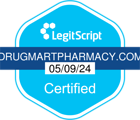Medications, both prescription and over-the-counter, play a crucial role in managing various health conditions. One of the major debates in the healthcare industry is the difference between brand name medications and their generic counterparts. In this article, we will explore the benefits and drawbacks of each type of medication and provide examples of when brand name medications are medically necessary and when generic medications are beneficial.
Brand name medications, also known as originator drugs, are created and marketed by pharmaceutical companies. These medications often undergo clinical trials and are patented to ensure exclusive rights to the manufacturer. The cost of developing, testing, and marketing a brand name drug is high, and these costs are passed on to the consumer in the form of higher prices.
Generic medications, on the other hand, are copies of brand name drugs that are made after the patent has expired. They contain the same active ingredient, but may differ in appearance, color, and other inactive ingredients. Because the cost of development and marketing is not passed on to the consumer, generic drugs are usually much less expensive than their brand name counterparts.
One of the main benefits of brand name medications is the level of trust that consumers have in the product. Because these drugs have undergone extensive clinical trials and have been proven to be safe and effective, patients feel confident that they are receiving the best possible treatment for their condition. In addition, the marketing efforts of pharmaceutical companies help to raise awareness about certain conditions and available treatments.
However, the high cost of brand name drugs can be a drawback for many patients. Insurance companies may only partially cover the cost of these drugs, leaving patients to pay a significant portion of the cost out of pocket. This can lead to financial strain, particularly for those who require ongoing treatment.
Generic medications, on the other hand, offer a more affordable alternative for patients. While the quality of generic drugs is strictly regulated, the lower cost of these drugs makes them a more accessible option for many people. However, some patients may have concerns about the effectiveness of generic drugs, as they are not required to undergo the same level of clinical testing as brand name drugs. Generic medications are usually available from multiple manufacturers. Therefore, it's possible that a medication from one generic manufacturer may suit you better than another manufacturer. It's best to discuss the availability and recommendations by a pharmacist.
In certain medical cases, brand name medications are necessary. For example, some conditions require the use of specific brand name drugs that have a unique formula or delivery method. In these cases, generic alternatives may not be as effective, and it is important to rely on the expertise of a healthcare professional to determine the best course of treatment.
In other cases, generic medications can be beneficial. For example, some medications have been on the market for many years and have a long history of use. In these cases, the active ingredient in the generic drug has been thoroughly tested and has a proven track record of safety and efficacy.
In conclusion, the choice between brand name and generic medications is a personal one that should be made in consultation with a healthcare professional. Factors such as cost, trust in the product, and the medical necessity of a specific drug should all be considered when making a decision. Regardless of the type of medication chosen, it is important to take all medications as directed by a healthcare professional to ensure the best possible outcome. Feel free to stop by Drug Mart Pharmacy or call and speak to a pharmacist about your questions when it comes to brand versus generic medications.




.svg)
.svg)








